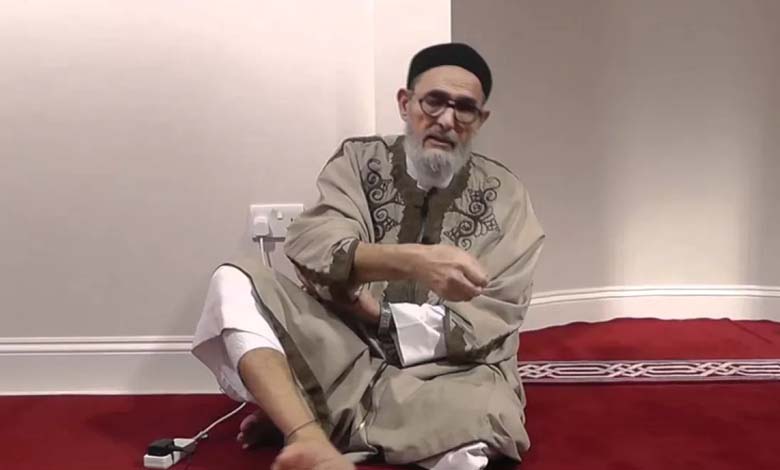One of the Leading Faces of Political Islam in Libya… What Is Al-Gharyani Seeking?

Al-Sadiq Al-Gharyani, the ousted mufti and member of the International Union of Muslim Scholars and the political face of the Muslim Brotherhood, continues to play on the terrorism card in Libya, with his inflammatory fatwas serving the goals and agendas of terrorist groups, which use them as justification for carrying out terrorism in Libya. Recently, he issued a fatwa “forbidding those guarding the crossings from preventing those who intend to storm them from crossing,” considering “storming the crossings a religious duty for Muslims to defend their brothers, their sanctuaries, their mothers, and their women.”
Commenting on this, Libyan political analyst Kamel Al-Mraish said that Al-Gharyani intervenes at moments when he feels there is a danger, such as the potential change in the government of Abdulhamid Dbeibah at the end of his term.
Al-Mraish added that Al-Gharyani has surpassed all historical figures of the Muslim Brotherhood after solidifying his relations with British intelligence, noting that the ousted mufti has become a tool for dismantling any attempt at reconciliation and unification of the country and ending the division.
He pointed out that these efforts “serve the interests of foreign countries that want to perpetuate division and the failed state status in Libya, as well as the continuation of the looting and plundering benefiting what he calls Dar Al-Ifta, which has expanded to become an octopus within state institutions.”
Al-Mraish added that Al-Gharyani “managed, with direct support from British intelligence, to obtain the support of extremist militias, including some elements of Al-Qaeda and ISIS, fleeing from Derna, Benghazi, and Sirte, to Tripoli,” noting that he (Al-Gharyani) has become a military arm added to his religious role, for “terrorizing and extorting all of Libya’s institutions.”
According to the Libyan analyst, toppling him in Tripoli according to its current situation is difficult, but if there is national unity, he will fall and flee to his permanent address in Exeter, Britain, where his home and close relationships are.
Political Islam currents now need to search for new centers after losing many of their allies like Turkey, which underwent a significant shift in its stance towards the Muslim Brotherhood due to considerations related to its interests with Gulf states and Egypt, and its desire to move past the phase of confrontation with its regional environment.
Al-Gharyani is one of the leading figures of political Islam in Libya, known for his extremist and incendiary fatwas, and he could provide, with his network of relations and influence, a refuge for some of the rejected in the West or expelled from Turkey or Qatar, which could make Libya a new center of political Islam.
Al-Gharyani does not resort to ambiguous rhetoric as other Muslim Brotherhood leaders do, and it is likely that the group’s voice will be used to attack certain countries to maintain the momentum of its supporters, especially Egypt, as well as Tunisia after the imprisonment of Ennahdha movement leader Rached Ghannouchi and the setback of his party.












